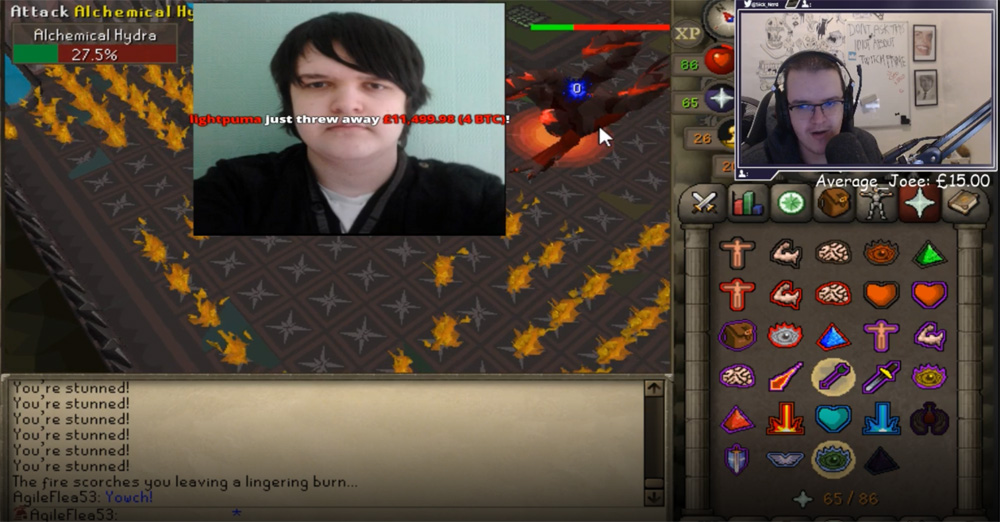The Daily: Twitch Gamer Tipped $70K in Crypto, Hacker Returns $100K of ETC

In this edition of The Daily, a video gamer streaming on Twitch has received crypto donations totaling over $70,000 and a hacker believed to be behind the 51 percent attack on the Ethereum Classic blockchain has reportedly returned $100,000 in ETC coins. Also, Electrum developers have issued another series of warnings about phishing attempts using the name of the popular cryptocurrency wallet.
Also read: NYC to Launch Blockchain Center, Wyoming Advances Industry-Friendly Bills
Gamer Gets $70,000 in BTC Donations
A video gamer going by the nickname “Sick_Nerd” has been tipped more than $70,000 in cryptocurrency while streaming a game of Runescape on Twitch. Most of the money was donated in several separate transfers of BTC by another user with the handle “lightpuma.”
The game played in front of a couple of thousand viewers is a version of Runescape, which is the most popular edition of the “massively multiplayer online roleplaying games” genre. It has been estimated that Runescape has over 250 million players.

On Friday, Sick_Nerd got a total of 46 crypto donations amounting to around 20 BTC worth around $73,000, at the time of writing. Other Twitch users have recorded the stream and the gamer’s reactions. Later Sick_Nerd went to Twitter to thank his mysterious benefactor.
Last year, the popular video game streaming app Twitch enabled its users to tip each other with a number of major cryptocurrencies including bitcoin core (BTC), bitcoin cash (BCH), ethereum (ETH), and litecoin (LTC). The feature was integrated with the help of a company called Streamlabs and the tips are sent through the users’ Coinbase accounts.
Exchange Receives Back $100,000 Stolen in 51% Attack
The hacker, or group of hackers, believed to be responsible for the 51 percent attack against the Ethereum Classic blockchain has reportedly returned $100,000 worth of ETC coins to the cryptocurrency exchange Gate.io, the trading platform announced in a blog post. The company said it’s trying to contact the attacker but hasn’t received any reply yet. The exchange commented:
Gate.io conducted its own analysis and concluded that the hashing power of the ETC network is still not strong enough. That means another 51 percent attack is still possible if enough hashing power is rented to launch it.
The exchange said it raised the number of ETC confirmations to 4,000 before accepting deposits and introduced measures to detect a new attack. The company urged other digital asset trading platforms supporting ethereum classic to also take steps to protect their users from blockchain reorg or rollback.
Electrum Warns About New Phishing Attempts

One of the attacks is being conducted through a fake Electrum wallet for stellar (XLM). The platform issued an alert noting that the electrum-xlm [dot] info is a Bitcoin-stealing malware. It tweeted: “There is no way to easily port wallet software from Bitcoin to Stellar, because these are completely different projects. Please do not download altcoin variants of Electrum, unless you really know what you are doing.”
The Electrum dev team also warned they have nothing to do with a project called Electrum Dark: “They are using our name without our permission. Please be very careful with altcoin versions of Electrum, as they are sometimes used as a vector to install malware that targets your real Bitcoin wallet.”
The previous phishing attack was conducted through malicious servers, which when asked to broadcast a transaction through a legitimate Electrum wallet, replied with an error message directing users to download a fake ‘security update’ from an unauthorized Github repository. The unknown hackers reportedly managed to steal over 200 BTC.
What are your thoughts on today’s news tidbits? Tell us in the comments section.














Article comments